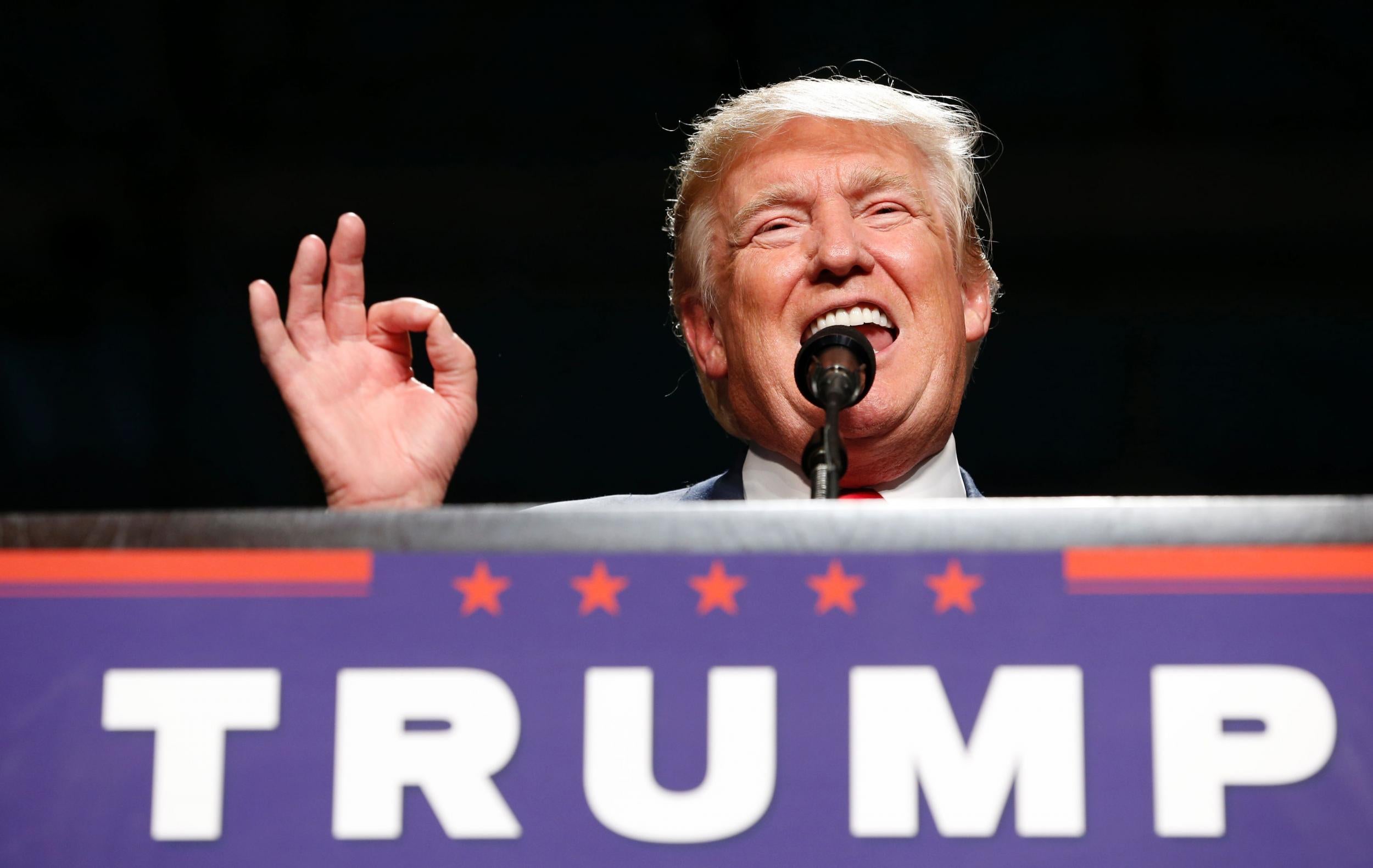Stock markets have predicted almost every US election. This time they say Trump will win
Falling markets point to success for this year's Republican candidate

Your support helps us to tell the story
From reproductive rights to climate change to Big Tech, The Independent is on the ground when the story is developing. Whether it's investigating the financials of Elon Musk's pro-Trump PAC or producing our latest documentary, 'The A Word', which shines a light on the American women fighting for reproductive rights, we know how important it is to parse out the facts from the messaging.
At such a critical moment in US history, we need reporters on the ground. Your donation allows us to keep sending journalists to speak to both sides of the story.
The Independent is trusted by Americans across the entire political spectrum. And unlike many other quality news outlets, we choose not to lock Americans out of our reporting and analysis with paywalls. We believe quality journalism should be available to everyone, paid for by those who can afford it.
Your support makes all the difference.The US stock market has predicted the winner of almost every presidential election since the Second World War – and this year suggests Donald Trump is on course for the White House.
A falling market almost always suggests the challenger candidate is set for victory - and the S&P 500 index is down 2.2 per cent in the last three months.
The performance of the index between July 31 and October 31 in an election year has accurately predicted the next president on all but three occasions since 1945.
When the stock market is doing well, the incumbent party’s candidate has won 82 per cent of the time.
But when the market is falling, the challenger has won in every election since 1984 – boding well for Mr Trump.
Only once since 1945 has the ruling party retained the presidency at a time when the stock market is falling.
That was in 1956, when Britain and France joined Israel in attacking Egypt over the Suez Canal while incumbent US president, Dwight Eisenhower, chose to keep America out of the unpopular attack.
And on only two occasions - in 1968 and 1980 - did a sitting president lose at a time of rising stock markets.
Sam Stovall, chief investment strategist at CFRA Research, said the state of the market was a bad sign for Hillary Clinton.
He told CNBC: "Going back to World War Two, the S&P 500 performance between July 31 and Oct. 31 has accurately predicted a challenger victory 86 percent of the time when the stock market performance has been negative.”
But Mr Stovall suggested the poor market performance could also be a sign of fears that the Democrats may win the presidency as well as control of the Senate and House of Represenatives. That would make it easier for them to push through big changes – something markets are generally wary of.
He said: "This time around if the Democrats retain the White House, I will come up with two responses. One is that history is a guide but never gospel, and two, the negative performance by the market could be a reflection of the worry of domination that a Democratic sweep would bring”.
Other analysts suggested the falling market may simply reflect uncertainty over the result of one of the closest presidential elections in years.
Ths S&P index differs from other major US stock markets such as the Dow Jones or Nasdaq because of the diverse nature of the companies listed and because it values businesses using a different method.
It is considered by many to be the best indicator of the state of the US economy.
Economic growth in the US is currently weak, with the economy only forecast to grow by around two per cent this year and consumer spending and business investment remaining sluggish.
It comes as Mrs Clinton continues to battle to get her campaign back on track after the revelation the FBI is investigating newly uncovered emails sent by her close aide, Huma Abedin.
Bureau investigators had previously concluded an inquiry into Mrs Clinton's use of a private email server but the announcement of new inquiries has rocked the Clinton campaign with just days to go until the 8 November election.
Despite the apparent shift in momentum, Mrs Clinton remains the strong favourite to win the election. The FiveThirtyEight website, run by elections analyst Nate Silver, currently estimates she has a 71 per cent chance of winning.
Bookmakers appear to agree that the former Secretary of State is still on top. While the odds of a Trump victory have shortened slightly, his Democrat rival remains the odds-on favourite, with British bookmakers offering odds of around 4/11– suggesting they believe she has a 73 per cent chance of winning.
The odds for Mr Trump taking the White House are around 9/4, giving him a 31% likelihood of victory.
Join our commenting forum
Join thought-provoking conversations, follow other Independent readers and see their replies
Comments